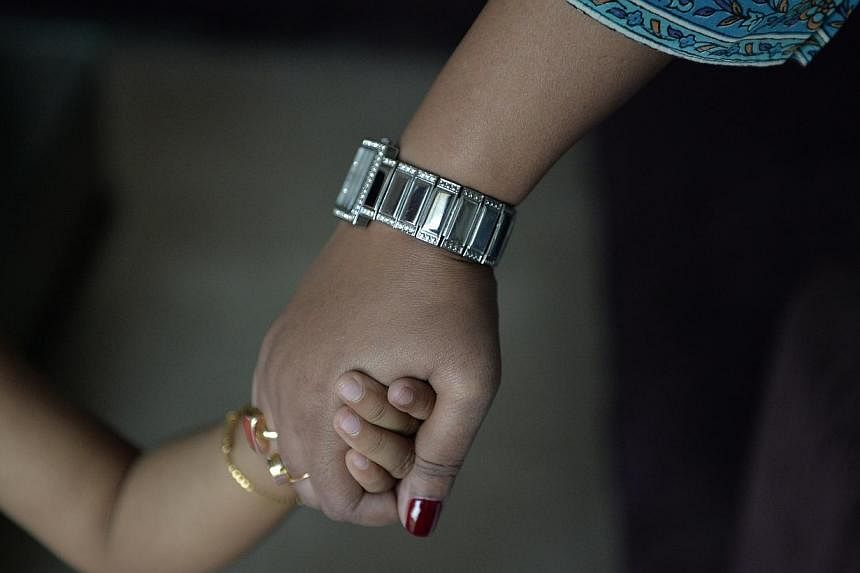Singapore has barred British nationals from adopting children here.
This is believed to be the first time citizens from any particular country are not allowed to adopt in Singapore.
The move is a response to the United Kingdom's decision in January to drop Singapore from a list of countries where it recognises adoptions automatically.
A British High Commission spokesman told The Sunday Times that Singapore was removed from the list as it has not signed the Hague Convention on Intercountry Adoption.
This is an international treaty to ensure that inter-country adoptions are made in the child's best interests. It also seeks to prevent the abduction, sale and trafficking of children.
Last year, Britain revised the list of countries where it recognises adoptions automatically to include only countries, like itself, that have implemented the convention.
The spokesman added that not recognising adoptions automatically does not mean that Britain will object to the adoption of children by British citizens in Singapore. But a child adopted here would no longer be automatically eligible for British citizenship.
As a result of Britain's decision, the Ministry of Social and Family Development (MSF) has decided to bar British citizens from adopting children here.
An MSF spokesman explained that since Britain no longer recognises Singapore adoptions automatically, British citizens will now have to seek entry clearance from the British authorities to take their adopted child back to Britain.
They will also have to apply to the British Courts to recognise their adopted child as their child, even though Singapore has already done so.
If the British authorities do not approve the application, the adopted child may not be able to return with them to live in Britain, explained the MSF spokesman.
The Sunday Times understands that the MSF is concerned the child may be left stranded here if this happens.
Amman Baby Adoption Services boss R. Rajalakshmi said a few clients of her company have been affected by the new rule.
Some of them are British couples who have already passed strict checks, called Home Study Reports, done by social workers to ensure that they are suitable for adopting children.
She said: "These British couples feel very shocked and sad that they cannot adopt here. Some even cried."
One British couple, both professionals in their 40s, had already found a Singaporean baby to adopt. They were introduced to a pregnant Singaporean woman by Ms Rajalakshmi.
They met the woman three times and agreed to adopt her baby after she gives birth.
The 21-year-old unwed and unemployed Singaporean mother, who declined to be named, said: "I have no money to raise my baby and I'm not married, so I'm giving my baby up for adoption.
"I feel comfortable giving the British couple my baby as I feel they will make good parents and I was really upset when they could not adopt because of the new rule."
She eventually gave her baby girl, who was born on June 2, to an Australian couple.
Lawyer Shone Aye Cheng has a British client who was unable to adopt his three step-children, aged between 13 and 16, also because of the new rule.
The consultant, 39, was transferred by his company to Singapore about a year ago. He is wed to a South African housewife and wants to adopt her three children from her first marriage as "it feels like the right thing to do and I see them as my own".
The man, who declined to be named, added: "It's incredibly frustrating that I can't adopt my own step-children here.
"It is insane that the British Government based its decision on which countries have signed the Hague Convention. They recognise adoptions automatically for Third World countries with questionable legal systems like Burundi and Swaziland that have signed the convention. And I cannot adopt in a First World country like Singapore."
It is unclear how many British nationals here are affected by the ban.
On average, there are about 390 children being adopted a year in the past three years.
About 12 per cent of the adoptive parents in the past three years were foreigners, although the MSF did not say how many were British citizens.


